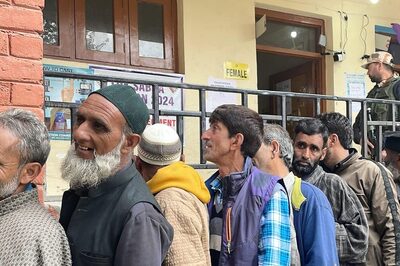
views
Washington: Even as it lowered India's growth forecast to 6.9 per cent this year from 7.1 per cent in 2011, the International Monetary Fund (IMF) on Friday said led by India and China, Asia will remain the fastest growing region in the world.
In fact India's growth will rise to 7.3 per cent in 2013, with growth in Asia expected to pick up this year, after slowing in the last quarter of 2011, the IMF said in its outlook for the Asia Pacific region released in Kuala Lumpur.
Similarly, China's growth after dipping to 8.2 per cent this year from 9.2 per cent in 2011, will rise again to 8.8 per cent in 2013, the 188-member Washington based watchdog of the world economy said.
The region is expected to continue growing at around 6 percent this year, before rebounding to about 6.50 per cent in 2013, the IMF forecast.
But Asian leaders now face the difficult task of adjusting policies to support stable, non-inflationary growth, IMF said.
"Calibrating the right amount of insurance to support stable, non-inflationary growth is the main near-term policy challenge," said Anoop Singh, head of the IMF's Asia and Pacific Department.
"Economic rebalancing remains a policy priority for much of Asia," he added.
Asia has continued to enjoy robust domestic demand against the background of the fragile global recovery. This has been reflected in low unemployment and robust credit growth in the region, IMF said.
Inflation expectations also picked up and so far, capital inflows into emerging Asia have rebounded in 2012. A further stabilization of global economic and financial conditions over the course of 2012 would provide a boost to the whole region. But it could also revive the threat of inflation.
The report suggests that inflation will decline modestly in 2012, averaging some 3.50 per cent.
Despite brighter prospects for the region, the report warns that financial turmoil in Europe could yet escalate and spread to Asia.
In particular, a sharp fall in exports to advanced economies and a reversal of foreign capital flows would severely impact activity in the region, IMF said.
The report also cites higher energy prices as a risk to activity, and a source of difficult trade-offs between inflationary pressures and budgetary risks from energy and food subsidies.




















Comments
0 comment